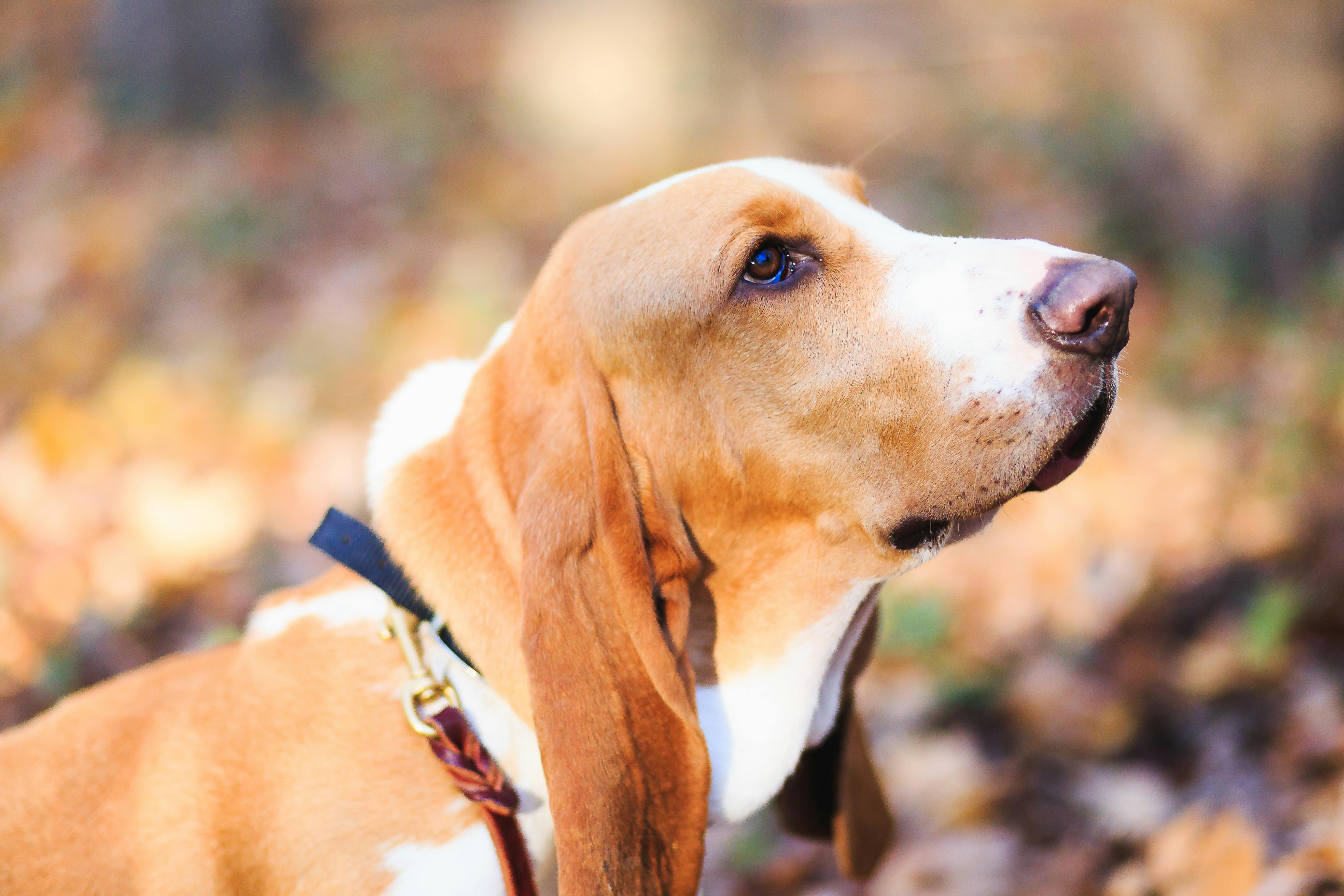
Basset Hound | Dog Breed
Last updated May 29, 2024
- Size 40-65 lbs
- Popularity Not that Common
- Typical Lifespan About 10 years
- Exercise Basset Hounds enjoy daily moderate walks and regular play sessions to stay healthy and happy.
- Grooming Needs Basset Hounds require regular brushing to manage their shedding and occasional baths to keep their coat clean, along with frequent ear cleaning to prevent infections due to their long, droopy ears.
- Country of Origin France
- Adaptability Basset Hounds are versatile and can thrive in both apartments and houses, as long as they get regular exercise and mental stimulation.
- Shedding Level Basset Hounds experience moderate shedding year-round and may shed more heavily during seasonal changes.
- Energiness Basset Hounds have a relatively low energy level and are generally laid-back, requiring moderate exercise.
- Vocality Basset Hounds are known for their deep, resonant barking and tend to be quite vocal, often using their voices to communicate or express excitement.
- Trainability Basset Hounds can be somewhat challenging to train due to their stubborn and independent nature, but they respond well to consistent, positive reinforcement techniques.
- Dietary Needs Basset Hounds need a balanced diet rich in protein and moderate in fat to support their muscle mass and prevent obesity. Regular portion control and limited treats are essential to maintain their weight.
- Weight Range 40-65 lbs
- Child Friendliness Child-Friendly
- Social Needs Basset Hounds thrive on companionship and enjoy spending time with their human families, often forming strong bonds. They also get along well with other animals, making them a delightful addition to multi-pet households.
The ideal home for a Basset Hound is one where it receives lots of love and attention. This breed thrives on human companionship and fits perfectly into a family where it can be involved in daily routines and be a part of everyday family life. Bassets are also very patient and gentle, making them excellent companions for families with children. They are calm and adaptable, so they can live in both urban and rural settings, as long as they have enough space to move around and opportunities to go outside to sniff and explore their surroundings.
Since Basset Hounds are quite calm and can be stubborn, they are also well-suited for first-time dog owners who are looking for a sociable and low-maintenance pet. However, it's important to remember that even though Bassets don't require a lot of exercise, they do need regular activity to stay healthy and happy. A home where there is time and willingness to invest in basic training and shared moments is the best possible place for a Basset.
Character
The Basset Hound is the epitome of calmness and patience. Its low and sturdy build hides a gentle and friendly nature, making it an excellent family dog. Its expressive eyes and long ears are bound to melt anyone's heart with their charming appearance.
This breed is calm and balanced by nature, adapting well to different life situations. The Basset Hound is a loyal and loving companion that forms deep attachments to its family. Though it may seem shy around strangers, it quickly builds strong bonds with those who show it kindness and love.
The Basset is stubborn and independent, yet very sociable and enjoys being around people. It is happiest when spending time with its family, whether it’s on a forest walk or a lazy day at home. Its calm nature makes it an ideal partner for children, offering them a patient playmate.
While the Basset Hound may not be the most energetic breed, it has a sharp mind and a strong hunting instinct. Its nose is among the best in the world, and it immensely enjoys following scents and exploring. Training can be challenging due to its stubbornness, but with patience and positive reinforcement, this breed can learn new things and enjoy carrying out tasks.
The Basset Hound may not be the first choice for action-packed adventures, but its warm nature and soothing presence make it an excellent friend for everyday life. It is a dog that brings gentleness and peace to life, making everyday feel a bit slower and more comfortable.
History
The Basset Hound's roots stretch far back in history, all the way to ancient times when dogs were used for hunting through selective breeding and cultivation. Early forms of this breed were already described in the works of Aristotle, but the development of the modern Basset Hound began in France during the Middle Ages. At that time, hunters needed slow-moving but extremely tenacious dogs that could follow game trails for long periods and in terrain where riding was impossible.
The name "Basset Hound" originates from the French words "bas," meaning low, referring to the dog's short-legged and low stature. The breed's short legs and sturdy structure were ideal traits that allowed it to work in dense undergrowth and forests. Its howl-like bark helped hunters keep track of it.
In the 19th century, the Basset Hound arrived in England, where it caught the attention of Queen Victoria and other high society members. Its unique appearance and hunting abilities made it popular among show dogs, and it began to gain fame as a hunting dog as well.
By the 20th century, the Basset Hound had established itself both in show rings and as a family dog. Its gentle nature, benevolence, and patience have made it a beloved pet. Although the Basset Hound is still a skilled tracker, its role has expanded to being a family member who enjoys the company of people and a peaceful lifestyle.
The history of the Basset Hound is a story of a distinctive dog breed that has retained its hunting instincts but also adapted to cozy home conditions. Its unique appearance and warm personality have made it an iconic breed that continues to delight people around the world.